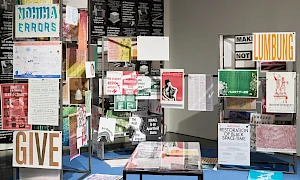BY ZDENKA BADOVINAC, BART DE BAERE, MANUEL BORJA-VILLEL, CHARLES ESCHE, VASIF KORTUN, NATAŠA PETREŠIN BACHELEZ, STEVEN TEN THIJE
Man, said Aristotle, is political because he possesses speech, a capacity to place the just and the unjust in common, whereas all the animal has is a voice to signal pleasure and pain.
–Rancière, 2009, p. 24
Europe is suffering from systemic injustice, yet Europe's politicians and technocrats seem determined to listen to their own pain only. What they fear is not loss of money, but of the monopoly on all possible futures. The destructive austerity policy of the last years has brought Greece to the only logical conclusion: we need a different reasoning to allow for a different future. This alternative is dreaded not because it might cost money, but because it means a reform of the European political system as a whole – the one reform all draconian reform measures seek to counter. Beyond the reign of econometrics, different politics need to be reinstated, placing peace and solidarity above a blind fidelity to the rules. Only politics that take into account more – culture, history, natural and human ecology – can be more than the sum of their parts. Only such politics can 'grow', not in economic, but in human terms.

Dan Perjovschi, Greece Report 1, 2015. Courtesy: the artist.

Dan Perjovschi, Greece Report 2, 2015. Courtesy: the artist.

Dan Perjovschi, Greece Report 3, 2015. Courtesy: the artist.
What is at stake with this latest escalation of the Euro-crisis is huge, if not enormous. For years, if not decades, and certainly with increasing persistence in the last months, Europe has been obsessed with numbers and technical models. It is as though it has silently replaced a common language based on words and verbs, with the grammar of calculators. The current political elite has no sense – in every possible meaning of the term – of the cultural and historical dimension of the great game they are playing so badly. Their forefathers knew what the 1945 'never again' imperative meant; they had witnessed the consequences of a divided Europe with their own eyes. In 1953, they knew that Europe could only heal from its dreadful wounds when economic debt was absolved (Frederik 2015). Now, despite Yugoslavia, Ukraine, Ireland and all the other 'regional' conflicts of the past half-century, Europe seems caught in its own visionless pragmatism. Literally blind, our 'leaders' are leading us towards a cliff. If they only open their eyes when the real fall begins, it will be too late.
All the talk about numbers hides the real drama that is taking place. It is as though since pain can not be represented arithmetically, then it does not exist. So we will conjure up some figures of our own. Since 2011, austerity has produced an increase in suicides in Greece: 11.2 deaths per month (Tutt 2015). The increase had already started in 2008. Since then, more than eleven human beings have put an end to their lives every month because of economic despair. These deaths can not be photographed; the pain can not be shared or made palpable for the particularly ignorant Northern European community. As if he was challenging the traumatic awareness that he is complicit, Jean-Claude Juncker announced that the Greeks should not choose suicide for fear of death. Trying to dispel the demon of his own beliefs, Juncker is unable to accept that the unacceptable has already happened. The Greeks are paying with their lives.
One day earlier, the chair of the Euro Group, Jeroen Dijsselbloem, was able to announce without flinching that the Greek government should be willing to take hard measures that might hurt in the short run, but would provide economic growth in the long run. Yet, 93% of any European 'bailout' never reaches a Greek hand because goes straight back to the German, French, Dutch and Luxembourgeois banks – those same jolly members of the banking system who brought the world close to financial and perhaps real Armageddon in 2008 (Nardelli 2015). When even their own statistics show that the Greek debt will still be unsustainable in 2030 under the troika's decree, what 'long run' is left? How can a politician bring such a message to his community when even his blessed number-crunchers do not see a future? What kind of politician thinks this is reasonable? How could they consider eleven unnecessary deaths a month reasonable?

Dan Perjovschi, Euro-Greece, 2010. Courtesy: the artist.

Dan Perjovschi, Europa (procentage), 2014. Courtesy: the artist.

Dan Perjovschi, Greek Bank, 2015. Courtesy: the artist.

Dan Perjovschi, Future, Bank, Data, 2015. Courtesy: the artist.

Dan Perjovschi, Austerity, 2015. Courtesy: the artist.

Dan Perjovschi, Austerity, 2015. Courtesy: the artist.
What Juncker, Dijsselbloem and their cronies cannot admit is that the reign of the calculators is failing all over Europe. Human modes of being, thinking and acting are too limited for econometricians, yet these narrow-minded scholars are the priests of the current political regime. This technocratic failure is not new and goes back to the early dawn of the modern state. After the French Revolution, the technocratic constitution implemented in the young Republic was unable to prevent the Robespierre tyranny. Wilhelm von Humboldt, a contemporary witness, concluded that the main deficit was that the French state was only built on reason, and yet we humans are more than that. Ethical, religious and cultural, humans were (and still remain) thinking and sensing beings who cannot be confined to nonsensical claims for 'rational economic behaviour'. Von Humboldt developed a wider understanding of the notions of Bildung as an alternative model for education and civic schooling, which would address the whole human being. Even though they could know better, a German government sadly leads a blind union of calculators, which forces Greece to consider its subjects as only half-human in order to make their sums add up.
Europe's current blindness and aggressive implementation of remedies it knows to be unfit for purpose is deeply disturbing. Everyone should be aware that hatred grows easily in Europe's shadows. History contains only ominous warnings of what this European howl of pain and call for revenge can release; yet our ability to remember is far weaker than our eagerness to forget. Everywhere in Europe, the current economic despair carries the danger of reactivating the ethnic scripts of the past. The scripts do not escalate incrementally but hide unpredictable tipping points when voices turn to force. Who would have predicted exactly twenty years ago today that we would be lamenting a new genocide on European mainland? It was exactly twenty years ago that Bosnian Serbs started to close in on the weakly protected valley of Srebrenica. Whoever foresaw what darkness lay ahead in those summer days was not wielding a calculator and proclaiming rational behaviour theories.
We therefore plead with all administrators and politicians involved in this crisis to lay their calculators aside for a moment and make an effort to listen to the words coming out of the mouths of those in despair. These are not screams of pain, but acts of speech that try to name what is unjust. Balance needs to be restored, not to our budgets, but to our common sense of humanity. As was the case more than two centuries ago when the democratic age dawned, we are still sensing and thinking beings and our values, our ethics, our sense for right and wrong, demand a different form of engagement than what you offer us. Let Europe be a political and economic union – a real "democracy with a plural demos1" – that can allow for different futures to exist, where alternatives and differences present strength instead of weakness – not because we can, but because we have to.
References:
Athanasiou, A. 2015, "The Right to Democratic Dissent", Chronos 26, June, viewed 3 July 2015.
Frederik, J. 2015, "De geschiedenis leert: wat de Grieken willen is heel redelijk (en wat de Duitsers willen hypocriet)", De Correspondent, The Netherlands, 28 January, viewed 3 July 2015.
Nardelli, A. 2015, "IMF: austerity measures would still leave Greece with unsustainable debt", The Guardian, 30 June, viewed 3 July 2015.
Rancière, J. 2009, Aesthetics and its Discontent, trans. S. Corcoran, Polity, Cambridge.
Tutt, P. 2015, "Greek austerity sparks sharp rise in suicides", CNBC, 4 February, viewed 3 July 2015.
The views and opinions published here mirror the principles of academic freedom and do not necessarily reflect the views or positions of the L'Internationale confederation and its members.
Related contributions
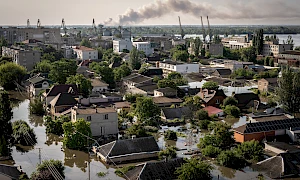
Statement on the attack on Kakhovka Water Dam

In solidarity with all the people affected by the earthquake in Turkiye and Syria
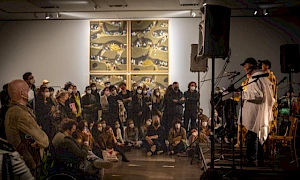
Public letter on WHW termination as directors of Kunsthalle Wien
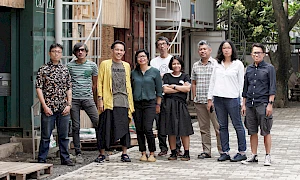
Statement in support of documenta fifteen
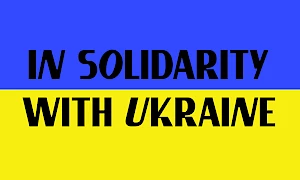
Never Again War!

Statement on the dismissal of Alistair Hudson
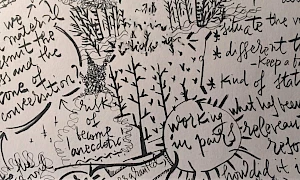
L’Internationale Public Statement on the recent events at MACBA
L’Internationale statement: Towards a healthy society
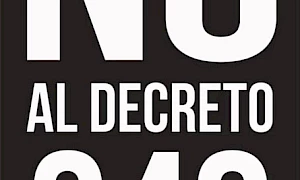
Standing up for the rights of all artists to free and independent expression
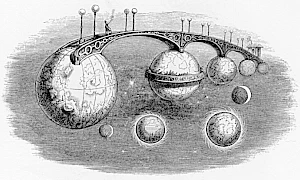
Tearing Down Bridges – Turkey's Withdrawal from Creative Europe
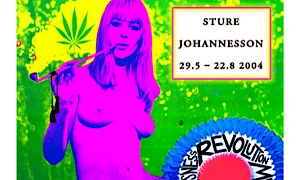
Of Cats and Canary Birds: Statement in Support of Lunds Konsthall
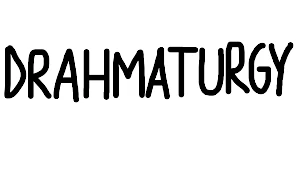
How Much Austerity Can Europe Endure?
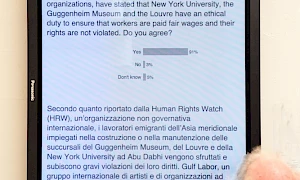
L'Internationale supports Walid Raad, Andrew Ross and Ashok Sukumaran after the recent ban on their entry to the UAE
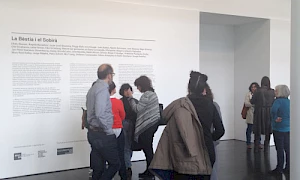
L'Internationale statement in support of the decision to open "La Bestia y el soberano" (The Beast and the Sovereign)
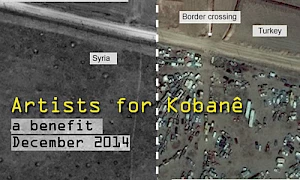
Artists for Kobanê: An online auction to benefit refugees from Kobanê

L'Internationale statement in support of MNCARS
New online platform for research, resources and discussion
Editorial: Towards Collective Study in Times of Emergency
